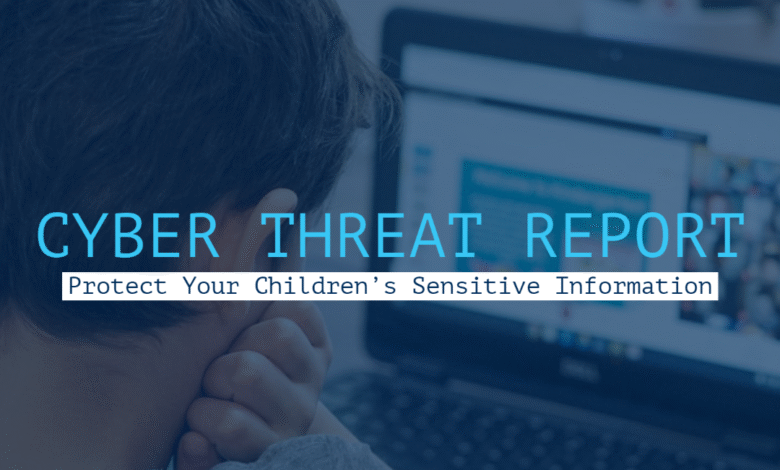Cyber Threat Report: Protect Your Children’s Sensitive Information

It’s not surprising that parents have had to move their children’s activities to digital devices given the decline in social gatherings, the adoption of distance learning by schools, and the prevalence of parents who work from home.
However, all of this unsupervised device use creates a number of Cyber Safety issues, including as device hacking.
However, all of this unsupervised device use creates a number of Cyber Safety issues, including as device hacking.
It’s essential to safeguard children’s private information as they spend more time online. Protect your children’s sensitive information.
READ MORE: Cyber Threat Report: A New Bluetooth Vulnerability
Almost seven out of ten parents (69%) reported that their child’s screen time has increased since the epidemic, with about three out of five parents (60%) believing they have little choice but to permit it; To keep their kids entertained and occupied, parents take on some risks to their child’s online safety (57%).
Due to the pandemic, over two thirds of parents (63%) say they have relaxed their criteria for acceptable screen usage.
Parents are inevitably concerned about their child being exposed to cyberbullying (61%), especially those of middle school aged children (11–13 years) (69%), as screen use soars and sociability shifts online.
The majority of parents (60%) worry that they don’t have enough time to monitor what their child does online.
Almost seven in ten parents (69%) reported that their child’s screen time has increased since the epidemic, with about three in five believing they have no control over it.
Parents must take all necessary precautions to protect their children and sensitive information given the increased time spent online. Here are a few recommendations:
- Enroll in identity theft protection for both you and your child. Nearly 7 out of 10 parents (69%) reported that their child’s screen time had increased. Even though your child won’t have a credit history, it’s crucial to keep an eye out for identity theft on their credit. Additionally, you can freeze their credit reports to prevent fraudsters from opening accounts in their names.
- Install proactive antivirus software on all of their devices.
- Make your youngster new login accounts. Keep them from accessing your accounts. Although creating additional accounts can be annoying, doing so will stop hackers from accessing your private data.
- Change your router’s default password if you’re still using it. Despite the complexity of these default passwords, they might not be specific to you.
- To reduce the possibility of being hacked, turn off devices while not in use.
Teach your kids how to stay safe online and about cybersecurity. Important safety guidelines should include:
- Avoid using simple passwords and particularly avoid using your name as part of the password.
- Avoid downloading programmes without authorization.
- Never divulge your password to anyone (except your parents)
- Only add people you know to your social media friends or followers list.
- Maintain a private profile on each social media platform.
- Never provide any private or delicate information online, such as your home address, mobile number, or email.
- Never post images of other individuals online without getting their consent.
As a parent protect your children’s sensitive information for a safe online environment, continue to educate and communicate with your child about their online safety and responsibilities. The more comfortable they are, the more likely they’ll be to alert you to suspicious activity and concerns.
READ MORE: How to Prevent Cyberattacks on Your Business






![5 Ways to Disable In-App Purchases on iPhone and Android [in 2023]](https://www.techknowmad.com/wp-content/uploads/2023/03/5-Ways-to-Disable-In-App-Purchases-on-iPhone-and-Android-in-2023-390x220.png)





One Comment